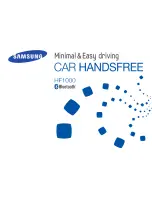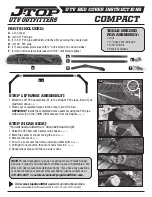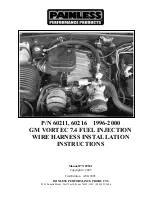
5.1.9 Front End Integrity for Cooling,
Crash, Aerodynamics and Lighting
Cooling
Continuous air flow through the front
end and engine compartment is not to be hindered
by adding any additional equipment. If uncertain
please contact your National Sales Company
representative, or local Ford dealer. If they are
unable to help you then please contact the
Vehicle Converter Advisory Service at
[email protected].
Lighting
Do not alter the lighting system.
Crash
Do not cut, drill or weld any parts that are
load path relevant in case of crash. Do not add
material in the crash zone. This could affect the
crash sensor calibration.
The side airbag system is not permitted if:
•
A swiveling device is fitted on the front seats
•
Any additional material or structure is attached
to the B-pillar inner and/or outer area
5.1.10 Tipper Bodies
For tipper conversions single and double Chassis
Cab versions except extended rear chassis frame
can be used. All variants allow single and three
way tipping.
It is recommended to have the tipping system
operative only when the engine is running. It is also
recommended to have the master control switch
in the security of the cab. According routing of
wires and hydraulic lines please refer to section
hydraulic lift.
Ensure that axle plated weights including the front
axle minimum are not exceeded.
For tipper sub-frames please refer to the following
guidelines:
•
Design for full length continuous frame with
mountings for motor, pump unit, reservoir, pivot
points and ram.
•
Use all mounting points on the chassis frame
to mount sub-frame, see Chassis Cab - Body
Attachment figures E167671 and E176772 for
fixing strategy.
•
The rear two sets of chassis frame mounting
brackets should have a full torque with 100%
grip. The attachment to the remaining forward
chassis frame brackets must be precisely
located and retained, but allow some relative
flexing between the sub-frame and chassis
frame. That is clamp control devices such as
conical washer stacks or machine springs with
self-locking fastenings.
•
Very stiff sub-frames may damage the chassis
frame by preventing its natural flexing,
therefore appropriate and captive fail safe
compliant mounts should be used. See figures
E74696 sub-frame attachment to chassis
frame and figure E175999 rigid or torsion stiff
sub-frame for chassis cab.
•
Use two M10 grade 8.8 minimum bolts,
washers and self-locking nuts at each solid
and compliant chassis frame location.
•
Sub-frame must extend to the back of the cab
and attach to all mounting locations, with the
forward end designed to minimize local frame
stress, see figures E167671 and E176772 for
fixing strategy and figure E74575 sub-frame
for low floor or other equipment. However it is
preferable to mount the sub-frame onto the
mounting brackets with a clearance to the
chassis frame top surface.
•
Side tipping loads/forces must be resolved by
the sub-frame. It is not recommended to strain
the chassis frame.
5.1.11 Tank and Dry Bulk Carriers
Due to the high rigidity of tanks it is necessary to
isolate the tank and its sub-frame from the
chassis frame allowing the chassis frame to
naturally flex. Please refer to the following
guidelines:
•
Mount tank to full length of sub-frame
•
Use all mounting points on the chassis frame
to mount sub-frame, see Chassis Cab - Body
Attachment figures E167671 and E176772 for
fixing strategy
•
Brackets should have solid full bolts torque
with 100% grip
•
The remaining forward location mounts must
be compliant to allow relative chassis frame
to sub-frame deflections
•
Sub-frame must extend to the back of the cab
and not contact chassis frame at forward end
under worst case deflection
•
Use appropriate and captive fail safe compliant
mounts, please refer to figures E74696
Sub-frame attachment to Chassis frame and
figure E175999 Rigid or Torsion Stiff sub-frame
for Chassis Cab
•
Use two M10 grade 8.8 minimum bolts,
washers and self lock nuts per chassis frame
mount bracket at each solid and compliant
location
Date of Publication: 03/2018
FORD
TRANSIT
2016.75
5 Body and P
aint
249
EU
















































